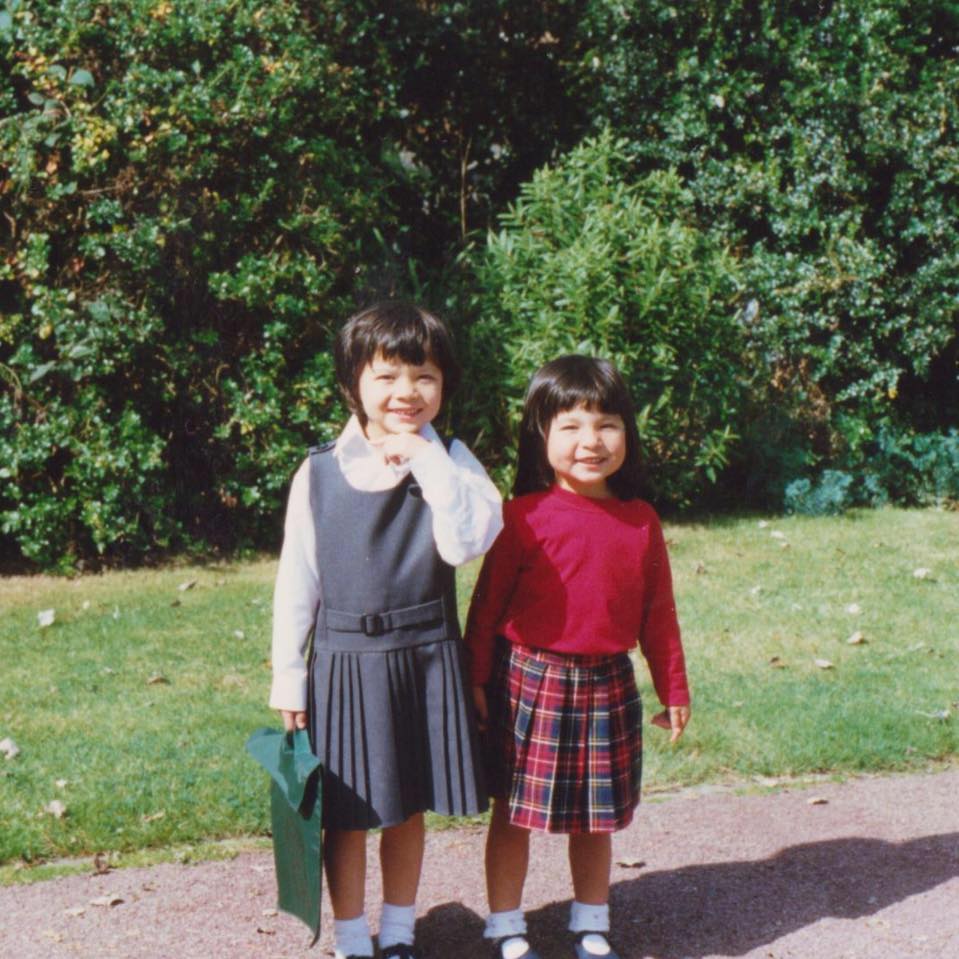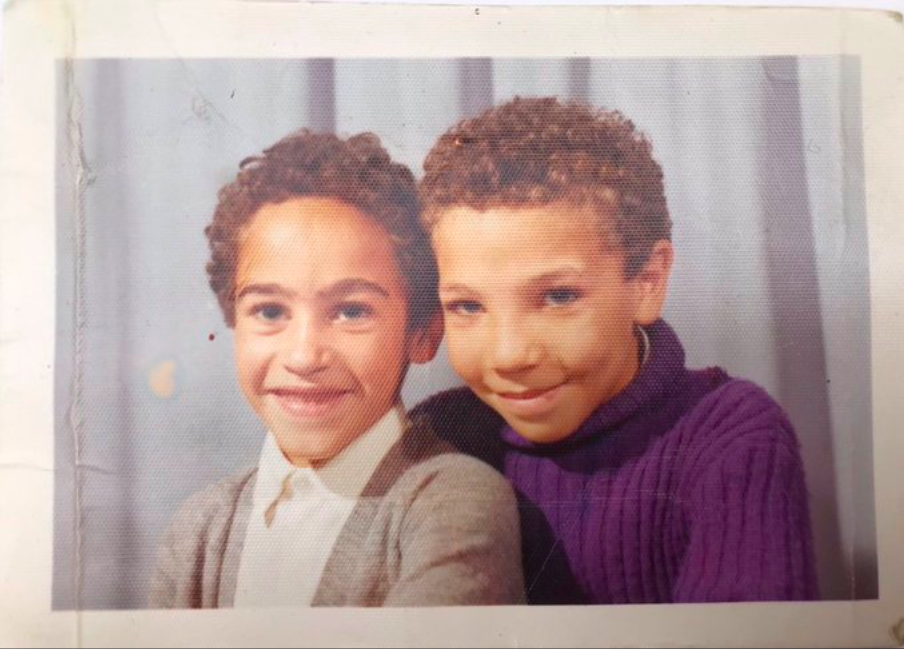
What I have learnt from being (occasionally) white-passing
Joanna Sing and Aditi Shivaramakrishnan
19 Apr 2016
The seaside town I grew up in enjoyed an overwhelmingly white, elderly population, and as a mixed-race girl of Chinese descent (my mother is from Malaysia) I could not imagine passing as white. I could count the other black and minority ethnic (BME) kids in my year on one hand, budding comedians shouted “nihao!” at me on the street, and it was often assumed the smattering of fellow civilians of east Asian descent around were my family.
I thought I stuck out like a sore thumb. As I entered adulthood, and ethnicity became a more frequently discussed issue, I was confronted with a new and recurring prospect: some people thought I looked white. Just white. Entirely white. Acquaintances, passing encounters, recently made friends – some of these people thought I was white, and it was only when I brought up my ethnicity that they would tell me so. This isn’t a regular occurrence – it happens infrequently enough that I’m still shocked whenever someone doesn’t realise, and people do still shout “nihao!” at me on the street. But I am, at least, an occasionally white-passing person.
Being white-passing awards you a huge amount of privilege; essentially, if you look white, you will be treated as such. You skip the part of being an ethnic minority where you must endure institutionalised racism and discrimination, and instead you benefit from it. Your experience of racialised abuse or aggression is probably minimal. You can look in magazines and on telly and see people who look like you. Other mixed-race, non-white-passing people do not enjoy this, and will often simply be racialised as black or Asian rather than mixed-race owing to the one-drop rule.
For these people, race is not just anguish over “tick your ethnicity” forms. For this reason, it is important as a white-passing person to understand non-white-passing folks have the right to be the dominant voice in race-centred discussions, and act accordingly.
However, this is not to say that being white-passing does not come with its own unique experiences and issues. For instance, you have the privilege of being considered “one of our own” by white people, and are treated as such, but this does also mean white people sometimes feel comfortable enough around you to air their racist beliefs. Sometimes about one of the ethnic groups you associate with; such as that of your mother.
This has happened to me a few times. Whether it’s been a joke about the appearance of Chinese people or a passing comment about the hardships of living with Chinese people, it’s an uncomfortable situation. You out yourself as an ethnic minority, make everybody feel awkward, then experience a weird misplaced guilt for making everybody feel awkward. And then comes the paranoia – is this how white people talk about us when we aren’t around? They must talk about it often, given that I’ve known this person for x amount of time and they’ve already whacked out a Chinese tourist stereotype as a topic suitable for introductory chit-chat. Maybe this is how people I know talk when I’m not about…
“You out yourself as an ethnic minority, make everybody feel awkward, then experience a weird misplaced guilt for making everybody feel awkward”
Also not fun are the existential issues that come with being white-passing; when I read Du Bois’ definition of double-consciousness: “this sense of always looking at oneself through the eyes of others, of measuring one’s soul by the tape of a world that looks on in amused contempt and pity”, I felt that while he referred specifically to the experience of black people there were aspects of his writing that could be applied to discussions about other races. Although I’m sometimes white-passing, I’m pretty Asian-looking too, and I scrutinise men’s sexual interest in me, only too aware of the hypersexualised Asian female trope in Western society, and question my “genuine” attractiveness outside of being “oriental”.
I worry my achievements will be attributed solely to my background as a typically hard-working, second-generation Asian rather than personal drive, and subsequently considered less valuable, and in some ways consider them this way myself. The instances in which I have been mistaken as white have thrown me off even further, and I question how much my aesthetic creates my cultural and racial identity, and how much of my personhood is crafted by others, rather than myself.
As a white-passing person, you also have to question your role in the issues you feel passionate about, and the opinions you hold and associate yourself strongly with. The visual aspect of ethnicity is hugely important in many, many race-centred discussions. Take positive discrimination: if I apply to a scholarship, graduate scheme, internship, whatever, reserved especially for people who identify as BME, then I can assume that the one of the goals of the organisation offering the positive action scheme is to increase the visibility of BME people in their organisation… obviously if I’m not immediately identifiable as minority-ethnic, then no little girl of Chinese descent in her white seaside town is going to open the company brochure and see that people like her can work in white industries.
“The visual aspect of ethnicity is hugely important in many, many race-centred discussions”
This isn’t to say I haven’t or won’t apply to positive action schemes (as I say, I’m received as non-white far more often than white, and also I think positive discrimination has more effects and goals than increasing visibility of BME people in different industries, although it’s obviously a big one), but it’s an example of how even fleeting encounters as a white-passing person both reveal and create complexities in already complicated race-centred issues.
And positive discrimination talk brings us nicely full circle, because complaining about not looking Chinese enough to apply for positive action schemes with a clear conscience ignores that if I’m as white-passing as some people have found me to be then I can just apply to any job as a white person and enjoy the privileges that this brings.
Similarly, having to ‘reveal’ yourself as mixed-race in social situations just means forgoing some of the privileges you previously enjoyed, ultimately meaning you now possess an experience more similar to that of a non-white-passing person. Largely, the issues with being white-passing, even occasionally, are of an internal and personal rather than structural nature, as, say, discrimination in the workplace or misrepresentation in the media are.
But, I still feel the white-passing experience is worth talking about, because I believe there are interesting and important conclusions about the constitution of racial identity to draw from it, and also because I feel intersectionality allows for the nuances of ethnicity to be discussed whilst acknowledging the privileges being, as in this instance, white-passing, affords you. And, on a personal note, I enjoy retelling the story about my English teacher who told the whole class about how Malaysians lived in the jungle, in trees, circa 2007, and how I smiled sweetly at her and told her I had never experienced that on my many visits to see family in that region.









